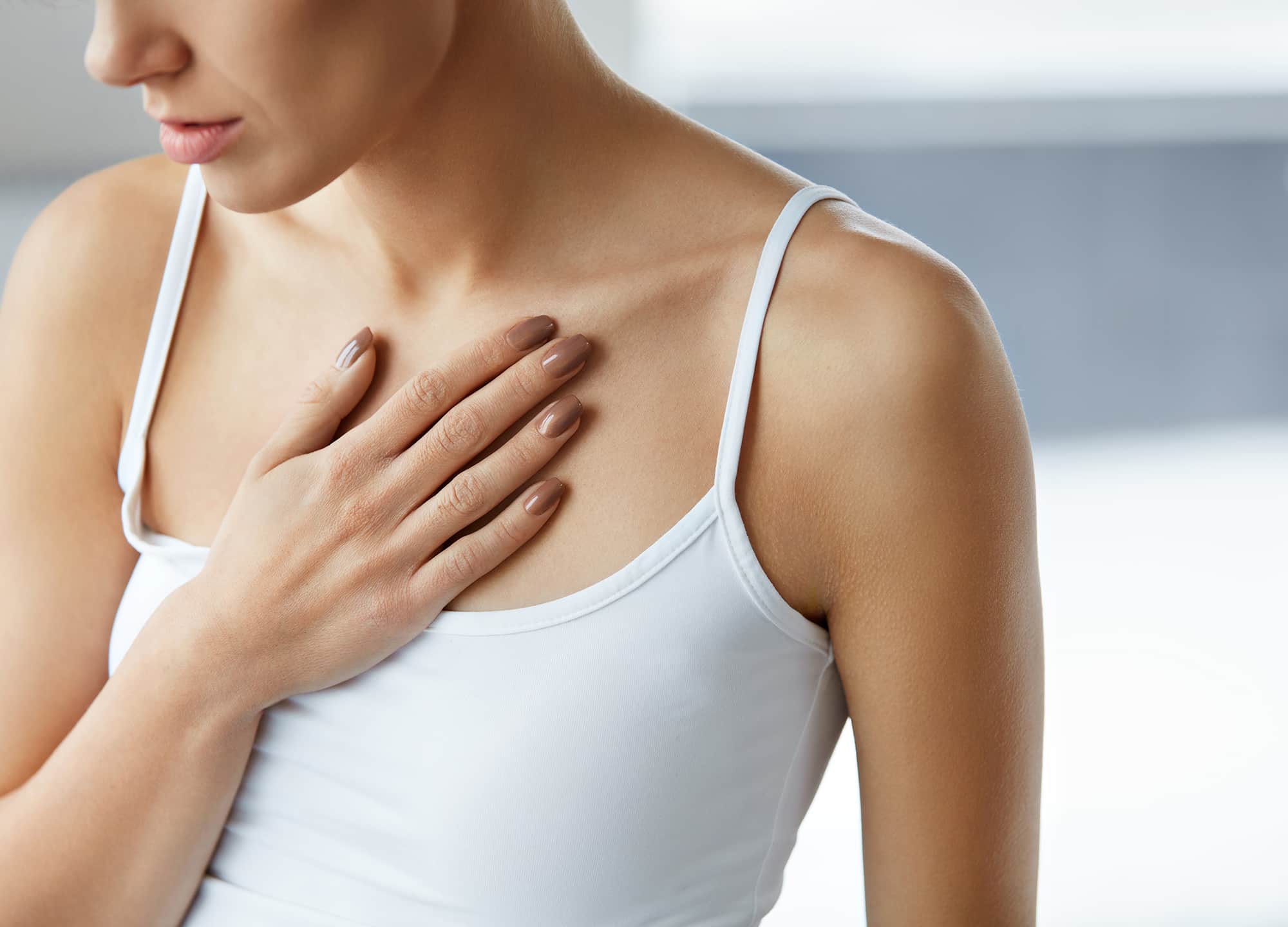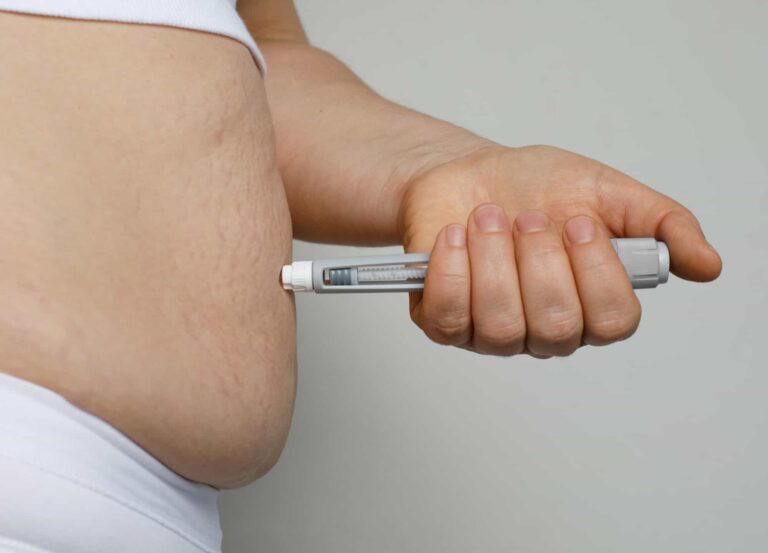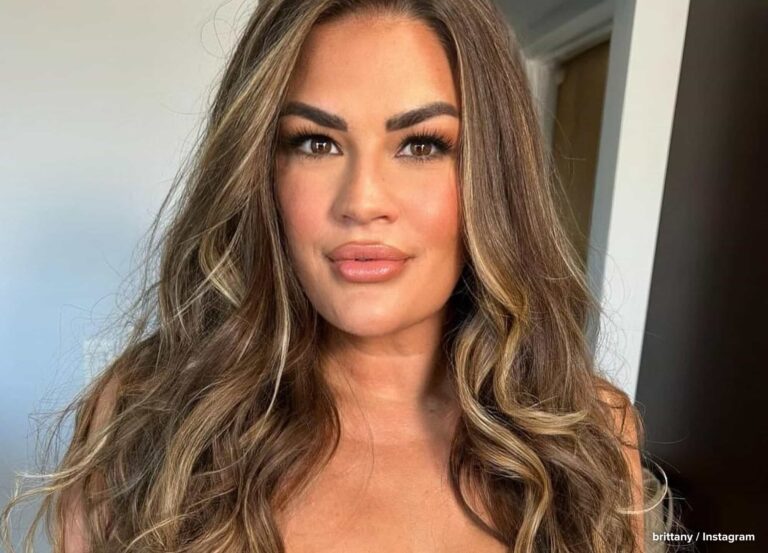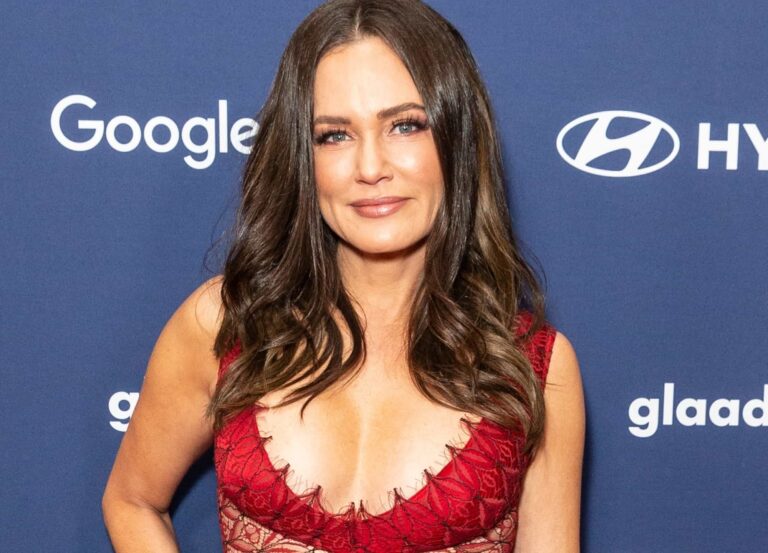Caitlin Kiernan was working as the beauty director of Life & Style magazine in New York City when she was diagnosed with breast cancer in 2012. What followed was a difficult, life-changing journey through the medical world that she never expected. After a lumpectomy, double mastectomy and breast and nipple reconstruction, she thought she had put cancer behind her—but says “the process never ends.” Her book, Pretty Sick: The Beauty Guide for Women with Cancer, offers helpful cosmetic advice and beauty-insider tips for dealing with the effects of treatment and maintaining your sense of self. This is Caitlin’s story—as told to Abby Gardner and edited for length and clarity.
I think the one thing every breast cancer survivor has in common is that none of us expects the diagnosis. I had always lived a very healthy life: I was never a smoker or a big drinker, I worked out—but cancer can happen to anyone.
When I found my lump, I was 41. I discovered it by chance when I rolled over one night and felt a pea-size bump graze my arm. Because the women in my family have cystic breasts, I assumed it was just a phantom cyst that came and went during monthly hormonal cycles. When it wasn’t gone a month later, I went to the doctor for a biopsy.
The very next day, I got a call in the middle of a work meeting. The doctor told me that of the three lumps found in further examination, only one ended up being cancerous. I completely blanked out during the call—which I think she must have suspected, because she said, “Take down my name and number right now.” I called my father and said, “Can you call this doctor back, because I’m not processing what she’s saying to me? I don’t think I heard it right. I think they got the results mixed up, because I just had the biopsy yesterday morning.” When he finally called me back, he said, “I’m sorry, it’s true.” I was in shock.
Suddenly, your life becomes fast-tracked in a way that you never knew could happen. During my first appointment with my oncologist, I asked her if I was going to be done by Fashion Week. She said, “Oh, honey—you’ve got to put the brakes on your life for a minute, because this is literally going to… it stops everything.”
From that point on, I was in a doctor’s office every week. I did a lumpectomy first, and I wish I hadn’t, because my gut initially told me to get a double mastectomy. That’s what I felt most comfortable with, because I didn’t want to ever revisit this experience; but my parents were very concerned about the trauma of that surgery, so I listened to them.
After the lumpectomy, I was originally scheduled for a pretty intense chemo protocol involving Taxol that would cause me to lose all my hair, my nails and more. It didn’t feel quite right to me: my Oncotype DX test score (18) put me right in the middle of what would be considered stage 1 or 2. One of the creators of that test, Dr. Clifford Hudis, still practices at Memorial Sloan Kettering, and I was trying to get in to see him. On the day I was going to go get my head shaved ahead of treatment, his office called and said he had a 30-minute window to see me—and that visit ended up changing my protocol. I switched to Dr. Hudis and did a less aggressive chemo protocol every two weeks, for three months.
My body still reacted to the treatment though. It sounds weird, but the cancer itself didn’t make me feel like a sick person—the side effects of chemo did. I lost some hair but also developed incredibly painful cystic acne that couldn’t be covered with foundation. And I kept breaking out in hives and rashes, due to the toxicity of the chemo. They were everywhere: my hands, scalp, legs. It affected how I looked and how I felt. My eyes were glassy, and I was fuzzy and sleepy from the Benadryl I had to take for my hives. I started to feel like I was losing myself.
Once the chemo wrapped, I was supposed to get radiation. They were going to have to radiate my right lung because of the tumor’s placement: it was very deep and my breasts were very small and dense, so the tissue was almost on top of the lung. At that point I was like, “I’m out.”
I didn’t want to do that treatment and risk developing chronic pneumonia or lung cancer down the line. I kept asking myself, Why am I doing this? I marched across the street to Dr. Hudis at Memorial Sloan Kettering. When I told him my decision, he said, “You’ll be the first patient I’ve had in my 40-year career who has switched protocols in the middle of treatment.”
Instead, I opted for the double mastectomy I should have had from the beginning. During that surgery, they put in tissue expanders that I had for several months before my full reconstruction. I had to wait another five months to get my nipple tattoos.
Recently, there’s been a bit of a blip in my progress, because my implants were recalled. The ones I have are cohesive-gel textured implants, and they were supposed to help prevent scar tissue. But now they’ve been linked to a type of lymphoma, so I’m opting to have them removed in December and replaced with new implants. It’s been a really horrible time, and the process never ends really. [Editor’s note: The FDA is not recommending that consumers remove their implants if they are not experiencing any symptoms or experiencing any issues with their implants, but you should consult with your doctor.]
When all is said and done, breast cancer is a long, long road—and the most important thing is for women to be able to listen to their gut and remain calm and centered enough to be able to make informed decisions and do the research. You have to compartmentalize other aspects of your life. Had I quieted my mind from the very beginning, I could’ve saved myself a lot of time. I would have had my mastectomy and chemotherapy, and I would’ve been done in a year. Instead, everything took three and a half years.
I can’t stress how important it is to pause, if you have the luxury of time, and do your research. I see my surgeon and my oncologist all the time and am constantly in communication with them. This is a lifetime relationship. You need to know that person’s in your corner. Whatever question you have is a valid question. If your doctor is dismissing you, that’s not the doctor for you. Word of mouth is so important—any doctor can have a fancy website. I remember a woman saying to me, “Can I see your reconstruction? I’m thinking about this doctor, but I’m unsure.” I met her for coffee and showed her my boobs in the Starbucks bathroom—how awkward is that? But a good surgeon will feel comfortable connecting you with other patients. There are also a lot of hospitals now with mentor programs you can join, to be surrounded by women there to help you.
Everybody knows somebody who is affected by breast cancer, and I have not met one survivor who doesn’t want to help another survivor. What has helped me throughout this is “blessing and releasing”: accept it, deal with it the best you can, then bless the situation and release it back into the universe.











